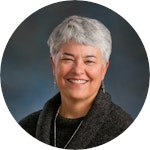On January 15, 2009, US Airways Flight 1549, an Airbus A320 piloted by Captain Chesley B. “Sully” Sullenberger, made an unpowered emergency water landing in the Hudson River after multiple bird strikes caused both jet engines to fail. All one hundred and fifty-five passengers and crew successfully evacuated from the partially submerged airframe as it slowly sank into the river; they were rescued by nearby watercraft. Several passengers suffered injuries, but only one required hospitalization overnight. The media labeled the incident the “Miracle on the Hudson.” But Sully’s colleagues knew that it was anything but a miracle. It was Sully’s twenty-nine years of experience in flight simulators and in the air that accounted for his quick reaction under stress. Accordingly, they awarded him the coveted Master’s Medal of the Guild of Air Pilots and Air Navigators.
In 1981 Microsoft released its first flight simulator software. It featured real-world scenery and offered players the opportunity to select the kind of airplane they wished to pilot (anything from a prop plane to a Learjet). Players could choose any of 180 airports around the country from which they wished to depart or attempt to land (I say “attempt,” because only after many hours of practice could a player avoid crashing the plane and land safely).
The software was all very realistic. You could crash into the Empire State Building in New York City, the Space Needle in Seattle, the Sears Tower in Chicago, or Pike’s Peak in Colorado Springs. Your plane could break apart in midair or break the sound barrier over Dallas. You could nose-dive into Lake Michigan going five hundred miles an hour. You could bury the nose of your plane in the tarmac attempting a landing in a thunder storm.
But the greatest thing about “Flight Simulator,” Len Kageler explains, is that the game always restores you. No matter what happens, you can start all over again. Whenever you crash and burn, fall apart, or splash into the ocean, the game always puts you back together and places you back on the runway ready to try again.
I imagine that this is what God had in mind when He established the church as an outpost of His kingdom. God’s intent was that the church be a training facility — a kind of flight simulator.
Think about it. The church is a place where we practice taking off and landing safely. A place where we learn how to respond to sudden turbulence, and practice flying by instrument when visibility is low. We are careful to keep the learning environment free of condemnation and full of good humor, because everyone knows that it takes time to become proficient. And nobody gets it right the first time — or the first five hundred times.
Flight instruction is provided by the Holy Spirit in the form of spiritual gifts. Each of us is given a spiritual competency to offer the others so that together we have all we need to master a whole new set of skills.
Let the message about Christ, in all its richness, fill your lives. Teach and counsel each other with all the wisdom He gives. …And whatever you do or say, do it as a representative of the Lord Jesus, giving thanks through him to God the Father. (Colossians 3:12 – 15, 17)
When I was in seminary, I received a lesson in this. I was home visiting my parents over a long weekend when my father told me that Professor Dale Brunner asked to see me. When I went to see him in his office at Whitworth University, Dr. Brunner informed me that students on campus had told him about me.
“So how are you using your spiritual gift of teaching?” he asked.
When I replied that my heavy class load did not allow me the luxury of extracurricular activities, Dr. Brunner frowned and said, “Your gift of teaching does not belong to you. It is your responsibility to exercise it on behalf of others. If you fail to do so, others will not receive from God what you have been assigned to deliver. They will be hurt. And you will be responsible.”
My conversation with Dr. Brunner was an epiphany. It transformed my understanding of Ephesians 4, where Paul explains:
God has given each one of us a special gift through the generosity of Christ…. Now these are the gifts Christ gave to the church: the apostles, the prophets, the evangelists, and the pastors and teachers. Their responsibility is to equip God’s people to do His work and build up the church, the body of Christ. This will continue until we all come to such unity in our faith and knowledge of God’s Son that we will be mature in the Lord, measuring up to the full and complete standard of Christ. (Ephesians 4: 7,11−13)
Like you, more than anything, I long to live my life today as I will for all eternity in God’s heaven.
Gratefully, God has provided a place for us to learn and practice the ways of the Kingdom. The Holy Spirit has equipped you and me to understand a particular aspect of spiritual formation. I need what you know; you need what I know. As we share our experience, pool our knowledge, problem solve and work together, we are growing in our capacity to easily and naturally live our lives as would Jesus in our place.


